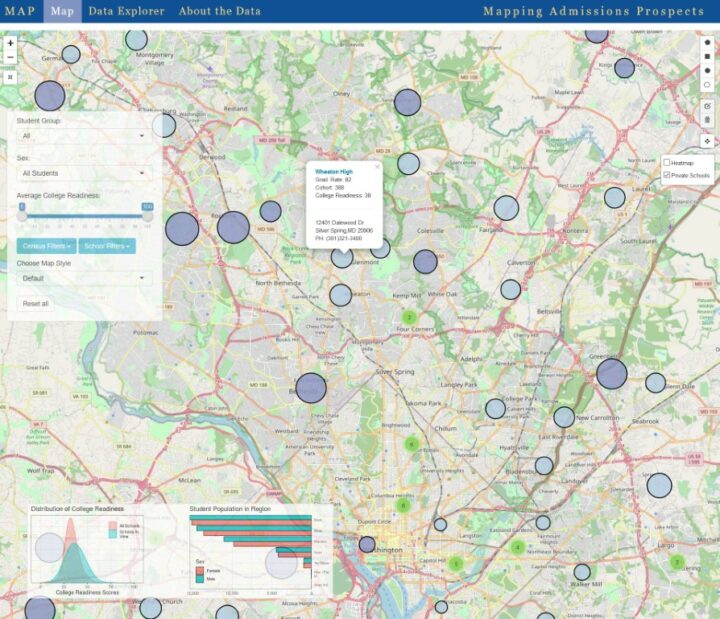Change demands change. COVID is impacting school schedules, in-person school attendance, and standardized testing opportunities. Purchasing student data for recruitment purposes is facing criticism and most traditional data sources have been interrupted. The validity of college entrance exams has been called into question and the timeline for having usable data from these sources is unknown. The landscape of higher education recruiting has to change and Civilytics is at the forefront of that change.
Civilytics offers a new mapping tool to efficiently identify target public high schools using customizable filters including college readiness indicators, student demographics, and household income. Mapping Admissions Prospects (MAP) allows admissions offices to apply a variety of filters against publicly available information to develop a recruitment plan based on their institution’s objectives. MAP was developed in collaboration with higher education institutions that wanted a user-friendly tool with the flexibility to adapt to their recruiting plan.
Whether that plan is expanding into a new market, identifying college ready first-gen or under-respresented populations, or locating schools nearby current feeder schools, MAP provides the relevant data needed to build a recruitment plan.
Admissions staff can get started using MAP immediately – point your browser at the application and go. There is no data integration, no set up, and no installation needed.
MAP is hosted and deployed in a cloud environment. Civilytics ensures the application is maintained and accessible at all times, and provides on-going technical support.
To view a demo, pricing plans, and additional information, stay tuned!


